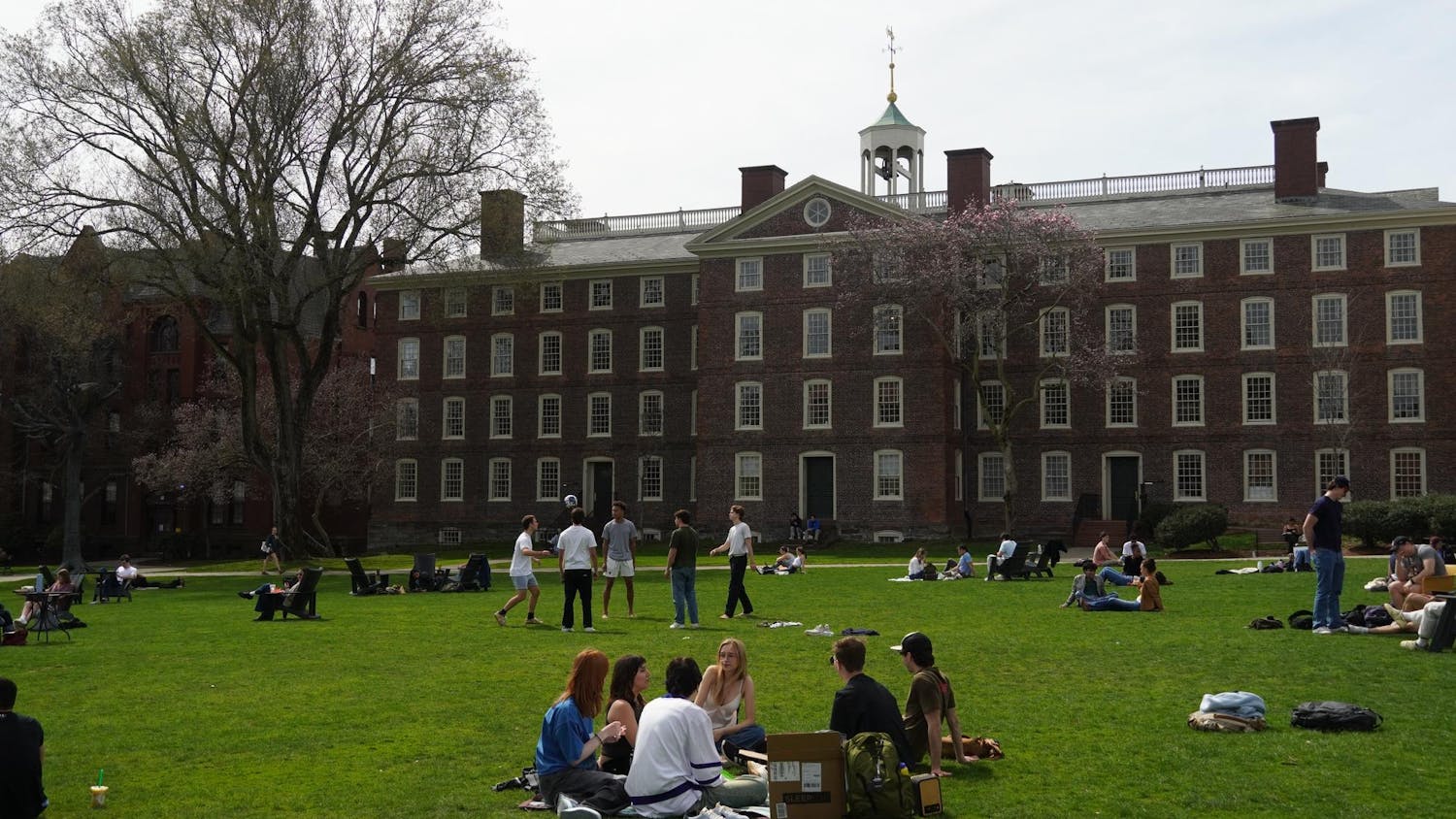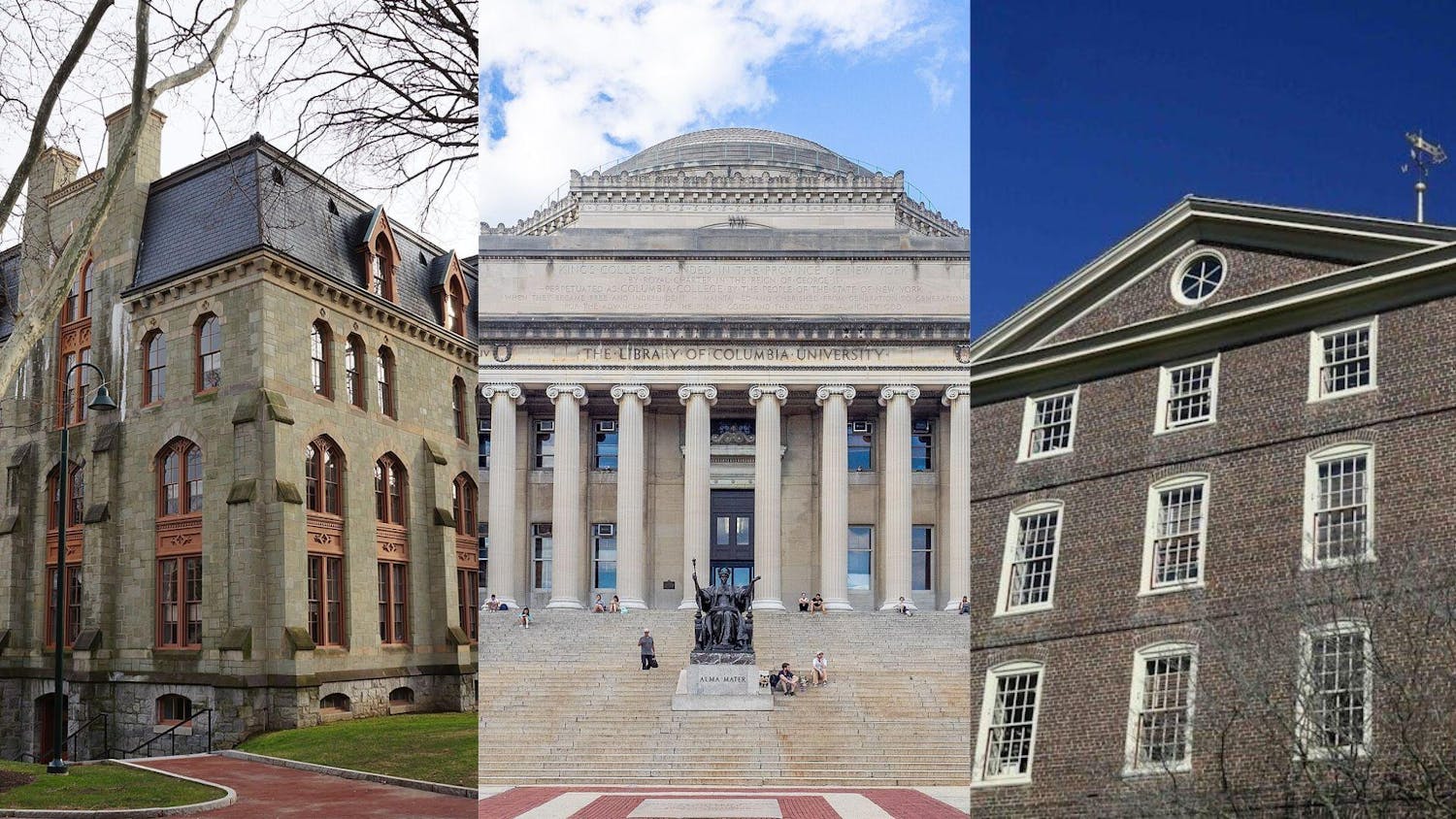Deputy Ambassador to Afghanistan Francis Ricciardone, Jr. sat down with The Herald Monday morning to talk about his life as a diplomat and about American relations with Afghanistan. Ricciardone, who was on campus for an evening lecture titled, "What are We Doing in Afghanistan?" at the Watson Institute for International Studies, agreed to a separate interview but requested that his lecture be "off the record."
After graduating from Dartmouth College, you began teaching and studying in various countries, including Italy and Iran. How did you go from this to becoming an ambassador for the United States?
Well, I am a career foreign service officer, and I have been in that profession for 31 years, since I came in from the Shah's Iran in the summer of '78.
But before that, I had been a schoolteacher and gone around the world. I wanted to see as much of the world as I could. I thought that this profession would offer me a chance to see even more of the world and do different things, and it has not disappointed.
One of the nice things about the foreign service is every couple of years you end up getting a different job, whether in Washington, New York, sometimes with the United Nations and even overseas … you're constantly learning new things and meeting new people.
You have been an ambassador to many countries, ranging from the Philippines to Egypt and now Afghanistan. What differences have you encountered when working with these nations and what similarities have you seen?
Of course cultures vary so much from one another, but I guess I can say wherever I served there is a keen interest in the United States, not only on the official governmental level, but ordinary people know much more about American culture, politics, history than Americans typically know about them. Wherever I have been it has been an asymmetrical kind of relationship in terms of what the host country and national government know about us …
Every school child in the fifth or sixth grade studies about the pharaohs, (but) so few Americans now know about modern Egypt and its role in making peace with Israel, for example. No one doubts that those two countries are going to live in peace with each other. American diplomacy helped to solidify that peace, and being part of that as ambassador there a couple of years ago was just an immense privilege and hugely meaningful to see how our development assistance and military assistance could contribute to Egypt's absolute commitment to living in peace.
How have your previous posts as an ambassador influenced how you do your job now?
When you are an American diplomat, particularly in the kinds of places I've served, you learn a lot about conflict and how conflicts can eventually be — if not resolved — then managed to minimize pain and suffering.
While much of my career was spent dealing with the Arab-Israeli conflict, in other places I have served, like the Philippines, I saw the conflict — in the southern part of the Philippines where the Muslims were actually a minority in the larger Christian culture. All of that is serving me in good stead in Afghanistan now, where it is a very complicated conflict. It is not a conflict between the United States and Afghanistan or the U.S. and Al Qaeda even, although we are focusing on Al Qaeda and their role in international terrorism.
There's a very complicated internal conflict within Afghanistan which is partly ethnic, tribal and partly cultural. I am able to approach the conflict there and its implications for the U.S. and our strong desire to work to support those Afghans who want to resolve the conflict.
There are certain things that outsiders — well-intentioned outsiders like us — can do and there are mistakes we make, that outsiders often make presuming we know more than the people involved.
What are the biggest foreign policy challenges the U.S. is facing in the Afghanistan/Pakistan region? What do you think is the best strategy the U.S. should take?
Our mission is to disrupt, dismantle and defeat Al Qaeda and its extremist allies in Pakistan and Afghanistan and prevent their return to either country in the future. Within that, we try to boil it down to a three-word motto, and the words that the Afghans like to hear are peace, justice and prosperity.
What they mean more operationally is, peace really depends on security. Most Afghans who are feeling good about the country are living in the areas where security has improved. And those Afghans who are worried about the future and think things are going the wrong way are in those areas where there is no security or security is very much in threat. And of course that is not only through our troop presence but also our intelligence and law enforcement operation with the government of Afghanistan.
Justice depends on governance — having a government that believes its job is to serve the people and not the other way around, the people serving the government. So we need to help the Afghans themselves organize and build institutions of governance.
And finally, when we say prosperity, it is not just a boy-scout slogan. You need programs and activities to make an economy function.
What advice do you have for students who are considering a career in foreign policy?
I had five years of being a schoolteacher in Italy and then Iran, and I'm really glad I did that rather then jumping right into federal service. You can see the world in a different way, and I think I am a better diplomat for having lived among people in Iran and all over Europe on a very low budget.
Why is the event open to the public but off the record?
There is kind of a custom, an interface between government and diplomacy and academia … It's good to have that freedom where I don't have to worry about someone extracting something and making a headline out of it at a moment of intense public interest in the foreign policy question of Afghanistan. I am a government official after all, and … I need to take great care that I faithfully represent the programs and the policies of the United States of America.
I thought that by making it off the record we could have a slightly more candid conversation with the question and answer part. Especially being around students as bright as Brown students are, I wanted to be able to give everyone a freer reign … It adds a level of protection, I think, for the decision-makers (in Washington).




